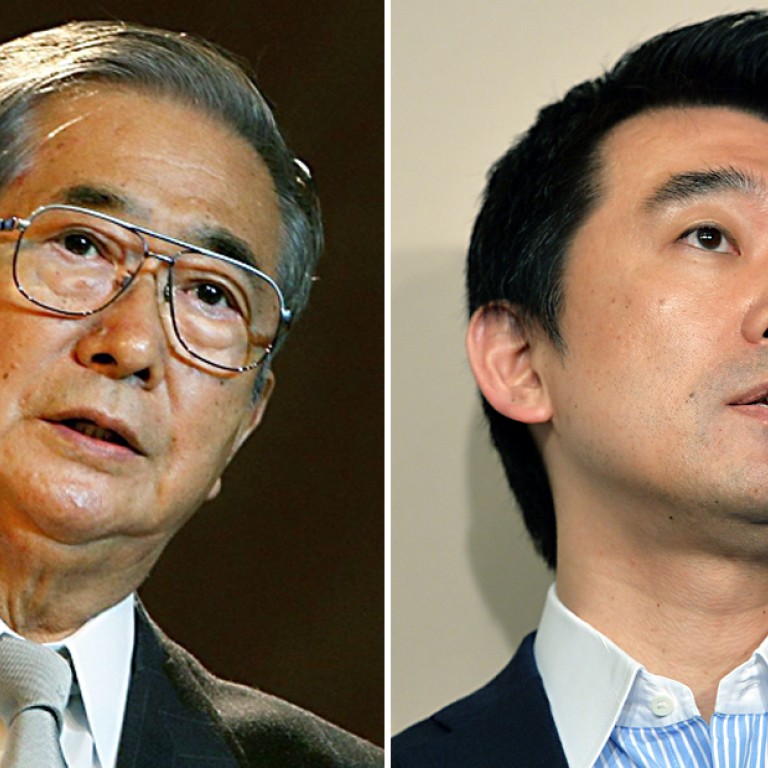
Political party of Shintaro Ishihara splits in Japan
A minor Japanese opposition party, led by former nationalist Tokyo governor Shintaro Ishihara, split into two yesterday as his drive to change the country's pacifist constitution backfired.
A minor Japanese opposition party, led by former nationalist Tokyo governor Shintaro Ishihara, split into two yesterday as his drive to change the country's pacifist constitution backfired.
Ishihara met flamboyant Osaka city mayor Toru Hashimoto, who had shared the chair of the conservative Japan Restoration Party, and they agreed to part company.
An attempt by Hashimoto to merge with another minor force in parliament, the Unity Party, contributed to the break-up. Unity rejects Ishihara's drive to scrap the US-inspired post-second world war constitution.
"I cannot side with a political party which does not accept the establishment of an independent constitution," Ishihara, 81, told reporters.
"I asked [Hashimoto] to divide the party into two. Mr Hashimoto accepted this."
Ishihara has long advocated the creation of a new constitution that allows Japan to have strong armed forces that can go to war. The present charter bans the use of force in settling international disputes.
Ishihara's own political group joined Hashimoto's in late 2012, when he renounced the Tokyo governorship to return to national politics through general elections in which the conservative Liberal Democratic Party (LDP) regained power with a landslide victory.
But the two strong characters have differed on important issues including nuclear power.
Ishihara has pushed for the restarting of nuclear reactors, which were switched off after the 2011 earthquake and tsunami-sparked meltdowns at the Fukushima nuclear power plant.
The Japan Restoration Party has 53 seats in the 480-seat lower house of parliament and nine in the 242-seat upper chamber.
The Unity Party has nine seats in the lower house and five in the upper house.
The LDP, led by Prime Minister Shinzo Abe, has a solid majority of 295 seats in the lower house and a near-majority 115 seats in the upper house.
- Japan's Chief Cabinet Secretary Yoshihide Suga said that a "verifying team" would study how the apology over wartime sex slavery was reached and the historical facts it was based on, with their probe expected to be completed later this year.
Suga, the government's top spokesman, told parliament that the "secret team" comprises "five intellectuals" - three women and two men.
It was unclear what would happen if the review was at odds with the official apology, which followed the testimony from 16 Korean women about their experiences of being forced into prostitution for Japanese Imperial soldiers.
